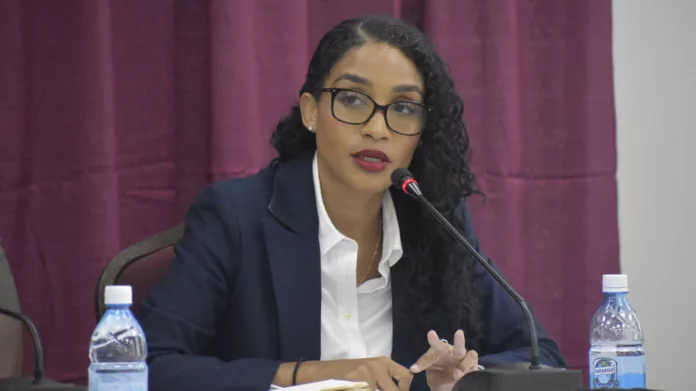As concerns mount over the welfare of the West African migrants who remain in Antigua in the wake of Tuesday’s tragic boat incident, the Immigration Department is lamenting the challenge of keeping track of their movements in the country.
At least three Cameroonians lost their lives when the fishing vessel they were travelling in, from Antigua, capsized off the coast of St Kitts. Sixteen survivors were rescued from the rough seas but another 13 remain unaccounted for.
Since the incident, questions have been asked about the likelihood of that trip being the only such undertaken by the migrants – who have been suspected to have long-held intentions of moving on from Antigua to the United States.
There have been public calls for the authorities to scale up their monitoring of the undetermined number of migrants who are still in the country, in order to prevent a recurrence of the tragedy.
But during a press conference on the matter on Thursday, Chief Immigration Officer Katrina Yearwood explained that it is a real challenge to do so, based on the “fluid” nature of their stay.
“Whether it’s Africans or any non-nationals that are here in Antigua and Barbuda, you are never going to know at any given time where they are in actuality … because sometimes they move from the home.
“So, you would have come in and it is written on your ED [embarkation-disembarkation] card that you’re staying at Garfield’s villa, then after a while you may decide I don’t like the accommodation at that villa, so I am going to move and go to a different location and when you move from that different location, that is not something that Immigration is easily informed of.
“With the Africans … we have a team in place that is being led by our intel unit here at Immigration. We have an idea of what zones they are in, which accommodations that they are at and, like I said, this is fluid. So, what I would have been informed of yesterday of where they would be, could easily change today,” Yearwood explained.
Despite the challenges, Yearwood told the media that they have a general idea of where most of the visitors are, which should be of assistance when international agencies arrive in Antigua to assess the situation.
“There is a hub. There is a team in place and I could confidently say that at any given time and when the international bodies come and they do ask where they are situated that we would be able to give an answer and show them the information that we have retrieved on the ground,” she added.
Approximately 200 West Africans have left the shores of Antigua and Barbuda legally since late January, leaving an estimated 400 still in the country, Yearwood said.
The last official numbers released in early February stated that 637 African migrants were still here out of a total of over 900 who arrived via charter flights from Nigeria in November and December.
Yearwood could not give precise numbers regarding how many are here now as she pointed out that some may have left illegally.

